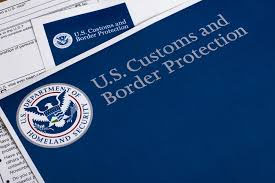
As this edition was preparing to go to press, the US government announced that the US has resumed issuing humanitarian parole for migrants from Cuba, Haiti, Nicaragua and Venezuela, which allow people from these countries to travel and enter the country legally, and which was suspended earlier this month to investigate possible fraud.
The Department of Homeland Security (DHS) confirmed to the press that after a pause of almost four weeks it has restarted the program that grants monthly entry to up to 30,000 people from these four countries to the US and allows them to obtain a work permit for a period of two years.
It was definitely a shame for many that humanitarian parole had been suspended, but now it is a cause for joy for many.
During this temporary suspension an updated review process was carried out and now the procedure to obtain authorization is different.
The elimination or not of parole for people from these countries to travel to the United States by 2024 had awakened fear for many citizens of these nations, who have been waiting for a sponsor to emigrate to the northern country and start a life from scratch, without a future in their countries of origin.
I know a good number of people who arrived in the San Francisco Bay Area very excited, happy to have been able to arrive in the United States legally, guaranteed to be able to work with their respective documents, without the fear that undocumented immigrants suffer of not being able to develop due to lack of immigration documents.
Now they are contributing to the public treasury and to their families in their countries, and complying with the ordered immigration requirements.
Although humanitarian parole (or humanitarian parole) is only for two years, the dream of the beneficiaries is for these immigrants, the American dream that we citizens or authorized residents know.
The American dream is the national spirit of the United States, according to which each person has the freedom and the opportunity to succeed and achieve a better life. The phrase was popularized by James Truslow Adams during the Great Depression in 1931 and has had different meanings over time.
The suspension came after an internal report by the Department of Homeland Security (DHS) found that thousands of sponsors of migrants listed false Social Security numbers and phone numbers, including in some cases those belonging to people who have already died.
The DHS explained that the selection process has been improved, especially for sponsors of people who apply under a figure known as “parole.”
“DHS has incorporated additional research of sponsors based in the US to strengthen the integrity of the processes,” the agency highlighted.
The program, which began at the end of 2022 only for Venezuelan citizens and was later expanded to include the other three nationalities, has allowed the entry of almost half a million migrants to the US, according to DHS data.
To apply for parole, migrants need to have a sponsor in the U.S. who already has legal status and can demonstrate sufficient income to financially support the program beneficiary.
The enhanced screening measures announced include, among others, increased scrutiny of sponsors’ financial records and criminal records, and methods to identify the filing of multiple applications by a single sponsor.
For those wondering what will happen when the two-year period expires, yes, they will be able to extend it through asylum.
People who entered with parole can apply for asylum online by creating an account on the USCIS website and filling out Form I-589. The deadline to do so is one year from their arrival in the United States. This process does not require the payment of any fee. The only drawback to requesting asylum would be not being able to return to their country of return, something that many beneficiaries of parole will not want to do, since the idea of emigrating temporarily through this program is to provide for themselves financially, and perhaps be able to regularize their status through other available means, or return to their countries.
These options include: work visas, study visas, family petitions, marriage visas, or asylum for which the migrant who arrived under parole can apply.
Congratulations and success to the citizens of Cuba, Nicaragua, Venezuela, and Haiti.



